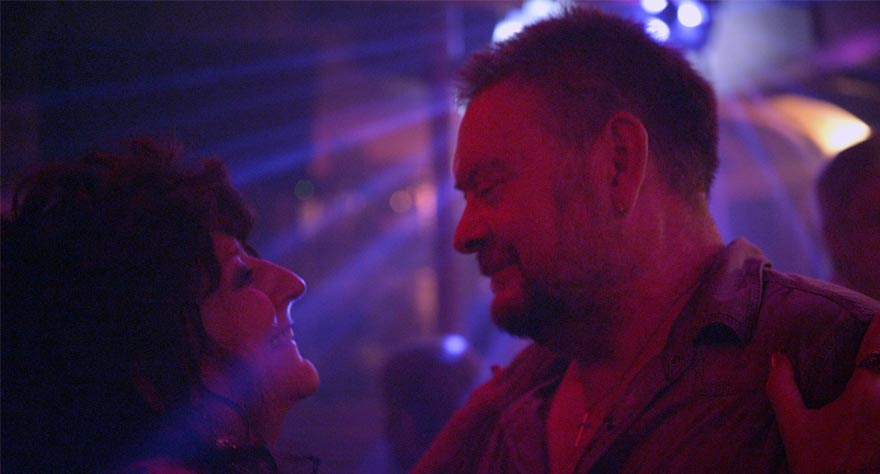
With the lead cast as herself, this film is too personal to be engaging.

With the lead cast as herself, this film is too personal to be engaging.
Following its debut as the Un Certain Regard opener at Cannes last year, Party Girl went on to win the Camera D’Or and Best Ensemble awards at the festival. Written and directed by Marie Amachoukeli, Claire Burger, and Samuel Theis, the film is inspired by the real-life mother of one of the young French filmmakers. You wouldn’t know by just watching the film, but read any press notes or review and they mention the lead actress portraying the mother is the real-life person the story is based on. It’s impressive considering the incredible performance she gives, but it also explains how deeply personal Party Girl is to these filmmakers. Unfortunately, committing to this true story seems to be more crucial for the filmmakers than it is for those watching it.
60-year-old Angélique (Angélique Litzenburger) likes to party. In fact, she does it for a living. As a cabaret hostess, her duties include flirting with men to entice them into buying expensive champagne, often dancing provocatively and drinking with her clients. Angélique has served many clients in the past, but her only regular client at the moment, Michel (Joseph Bour), recently stopped showing up at the dimly lit and noisy cabaret. She tracks him only to learn his absence is due to the overpriced champagne and his recent revelation that lap dances only provide temporary fulfillment. He wants something more; a meaningful relationship, one that doesn’t require him to purchase booze or buy time with a woman like she’s an object.
To Angélique’s surprise, Michel abruptly asks for her hand in marriage. She thinks it’s a joke at first. After all, in her line of work it’s common for guys to propose in the moment. But she realizes the offer is real, and suddenly she must decide between the chaotic party life she’s always known, or a settled-down relationship offering stability though little excitement.
There’s a point in everyone’s life when they realize they’ve matured beyond behavior that was once acceptable. For most this comes instinctively. But forAngélique, who has spent most of her life working as a cabaret girl, letting go of that lifestyle is no simple task. Angélique finds it’s nearly impossible to escape from her usual way of life; her instincts long for socializing, a part of her that may never change.
But she’s willing to give married life a shot. This decision leads to an awkward encounter with a marriage advisor when the two are asked how they met. Both of them are understandably embarrassed that they met at a cabaret, yet the film doesn’t focus on this humility for more than a fleeting moment. Which is part of the larger disappointment of Party Girl. While the filmmakers don’t attempt to manipulate emotions by savoring moments like these, they gloss over their comedic and dramatic potential, undermining their significance. Therefore, emotional weight is only suggested and never truly felt. Getting a chance to reform is a big step for Angélique, but Party Girl‘s nonchalant procedure implies that we better not get our hopes up. The film foreshadows the inevitability of her fate long before we have time to sympathize with her or her situation.
Considering it’s the filmmaker’s own mother playing an altered version of herself it’s no wonder the narrative feels personal. The problem is that it’s so personal the story excludes outsiders from joining this party. With such matter-of-fact presentation, it doesn’t come as much surprise to find that Angélique has another secret in her life that she does her best to avoid. Angélique doesn’t want to change, and frankly, viewers won’t be invested enough to feel any different.